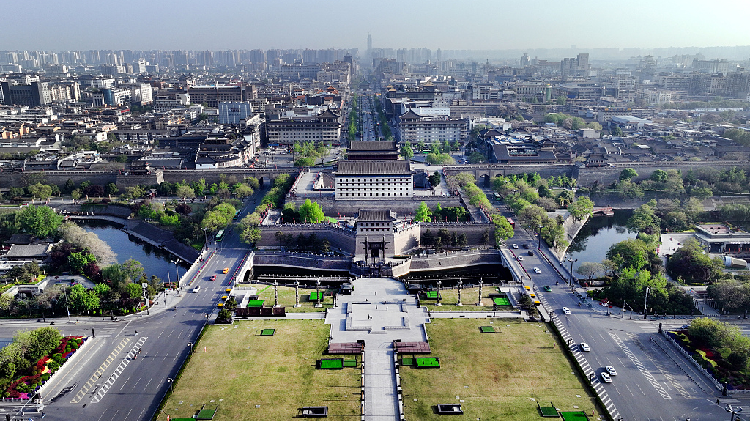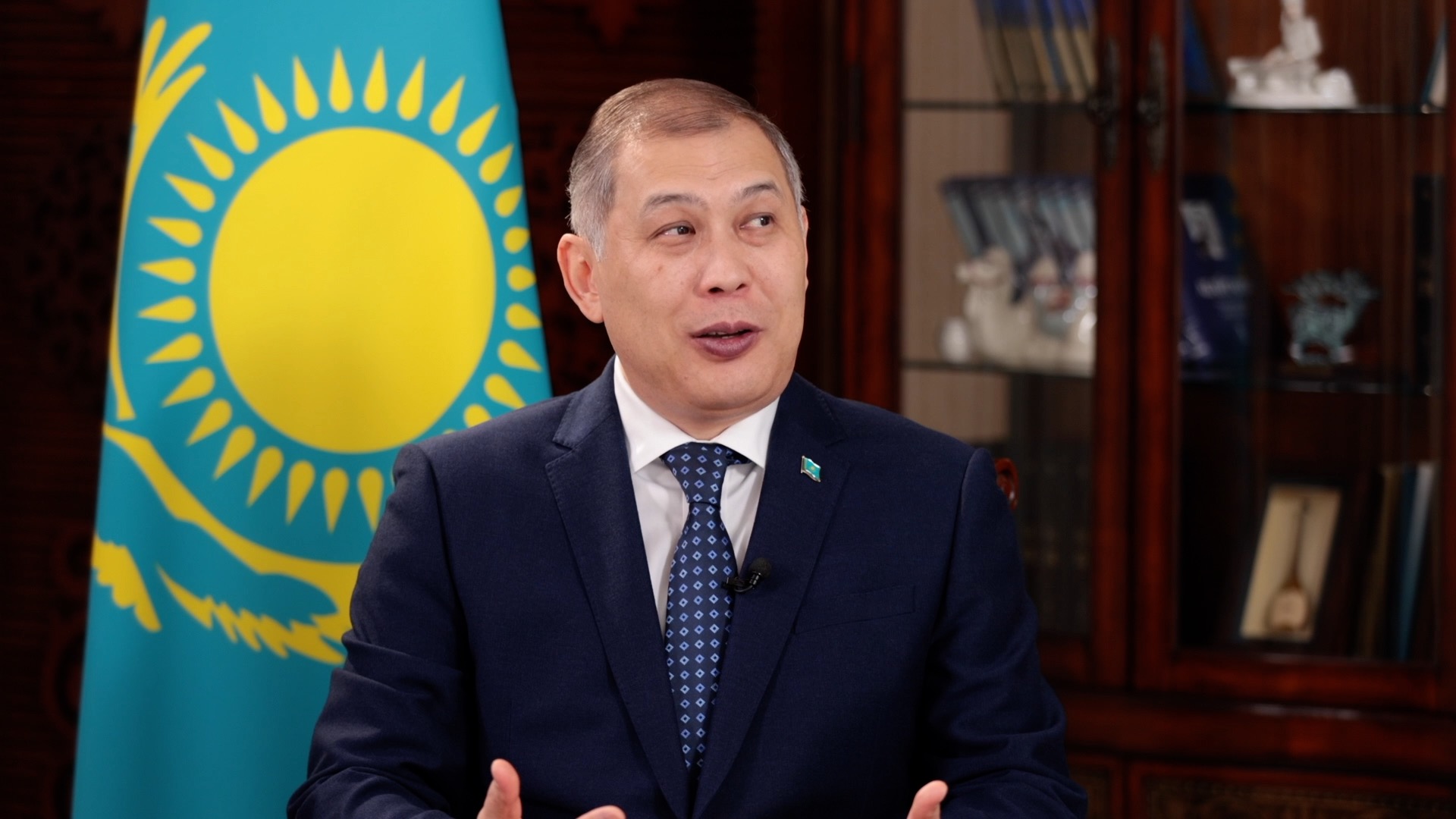
A panoramic view of Xian City, northwest China's Shaanxi Province, April 9, 2023. /CFP
A panoramic view of Xian City, northwest China's Shaanxi Province, April 9, 2023. /CFP
Editor's note: Mariam Shah is an Islamabad-based independent researcher in the field of conflict studies and military psychology. The article reflects the author's opinions and not necessarily the views of CGTN.
The upcoming China-Central Asia Summit will be held on May 18 and 19 in Xian, Shaanxi Province, and will be chaired by President Xi Jinping. At China's invitation, President Kassym-Jomart Tokayev of Kazakhstan, President Sadyr Japarov of Kyrgyzstan, President Emomali Rahmon of Tajikistan, President Serdar Berdimuhamedov of Turkmenistan and President Shavkat Mirziyoyev of Uzbekistan will be attending the summit.
The summit demonstrates China's successful diplomatic efforts and growing regional influence by establishing comprehensive strategic partnerships with all five Central Asian countries, demonstrating high levels of trust and cooperation. Fruitful outcomes are expected in political, economic, and security areas as participants seek new cooperation agreements. This summit is undoubtedly a testament to the deepening relationships and mutual benefits China has fostered with these nations.
Head-of-state diplomacy enhances mutual trust, establishes cooperation mechanisms, and resolves political obstacles. One of the most important highlights is Chinese President Xi Jinping's active involvement and personal engagement in the summit, highlighting China's commitment to strengthening ties with Central Asian countries.
As per the Chinese Foreign Ministry Spokesperson Wang Wenbin's regular press conference on May 8, 2023, Chinese President Xi Jinping will deliver an important speech on China's relations with the region at the summit. The six leaders are expected to sign an "important political document." Moreover, this summit will be the first-ever in-person summit between the leaders of the six countries. It will provide a "new framework" for future relations between China and the Central Asian countries.
The summit is also a milestone in China's relations with Central Asian nations. China has emerged as a key economic partner in the region through initiatives like the Belt and Road Initiative (BRI). The initiative has facilitated significant investments in infrastructure development, trade, and connectivity, fostering economic growth and development in the region.
Over the years, China's active participation in multilateral platforms has strengthened its role as a responsible global player. The Kazakh Ambassador to China, Shakhrat Nuryshev, said that the upcoming China-Central Asia Summit will "usher in a new era of cooperation among participating countries." The summit is expected to generate positive outcomes that will prove beneficial to all parties involved.

Shakhrat Nuryshev, the Kazakh Ambassador to China. /CGTN
Shakhrat Nuryshev, the Kazakh Ambassador to China. /CGTN
With time, Central Asian countries have shown an increased willingness to collaborate with China due to shared interests and stances on major international issues. Multi-dimensional cooperation mechanisms such as the Shanghai Cooperation Organization (SCO), BRI, and China-Central Asia Foreign Ministers' Meeting have fostered regional stability and development. The SCO has promoted security cooperation, while the BRI focuses on connectivity and economic progress. The BRI has yielded impressive outcomes in infrastructure, trade, and financial collaboration. Trade between China and Central Asian nations has significantly increased, reaching $70.2 billion in 2022.
Furthermore, the summit allows China and Central Asian nations to address shared security challenges, such as counterterrorism, border security, and regional stability. China's active engagement in promoting regional security cooperation demonstrates its commitment to maintaining peace and stability in Central Asia. Besides, all this aligns with the Global Security Initiative, which focuses on eliminating the root causes of international conflicts, improving global security governance, promoting joint international efforts, and encouraging durable peace and development worldwide.
The upcoming summit reflects China's diplomatic finesse, economic prowess, and commitment to regional cooperation. By leveraging its comprehensive strategic partnerships, economic initiatives, and political leadership, China has positioned itself as a critical partner for Central Asian countries, bolstering its regional standing and contributing to the development and stability of the region. Additionally, state visits to China by the presidents of Kazakhstan, Kyrgyzstan, Tajikistan, and Uzbekistan are expected to occur by the time of the summit, further strengthening bilateral ties.
The China-Central Asia Summit aims to further strengthen friendship, deepen cooperation, and build a shared future for the six participating countries. It represents a new high in China's comprehensive strategic partnerships with Central Asian countries and reflects a new consensus on development in the face of challenges. China has demonstrated its commitment to Central Asian countries through intensive diplomatic activities, including virtual summits and high-level visits. Keeping its stature as an important regional and global peace builder, China aims to expand cooperation and contribute to global peace and prosperity through the summit.
(If you want to contribute and have specific expertise, please contact us at opinions@cgtn.com. Follow @thouse_opinions on Twitter to discover the latest commentaries in the CGTN Opinion Section.)